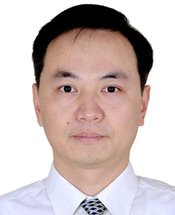|

|
Prof. Jing-Zhi Li (李景治 副教授)
Department of financial mathematics and engineering,
South University of Science and Technology of China
Email: li.jz@sustc.edu.cn
|
Abstract: We treat Zolesio's velocity method of shape calculus using the formalism of differential forms, in particular, the notion of Lie derivative. This provides a unified and elegant approach to computing even higher order shape derivatives of domain and boundary integrals and skirts the tedious manipulations entailed by classical vector calculus. Hitherto unknown expressions for shape Hessians can be derived with little effort. The perspective of differential forms perfectly fits second-order boundary value problems. We illustrate its power by deriving the shape derivatives of solutions to second-order elliptic boundary value problems with Dirichlet, Neumann and Robin boundary conditions. A new dual mixed variational approach is employed in the case of Dirichlet boundary conditions. Moreover, applications to acoustic and Maxwell scattering problems will also be addressed.
About the Speaker: Jing-Zhi Li graduated from Wuhan University with a bachelor (2001) and master degree (2004). In 2009, he obtained his Ph.D from Chinese University of Hong Kong. He is now an associate professor of the department of financial mathematics and engineering, South University of Science and Technology of China. His research interests mainly include scientific computing, finite element analysis, inverse problem, shape optimization, and financial mathematics. He was selected by the Recruiment Program of Global Experts (Young Scholar Program) in 2011.
Date&Time: September 12, 2014 (Friday), 10:00 - 11:00 a.m.
Location: 606 Conference Room


